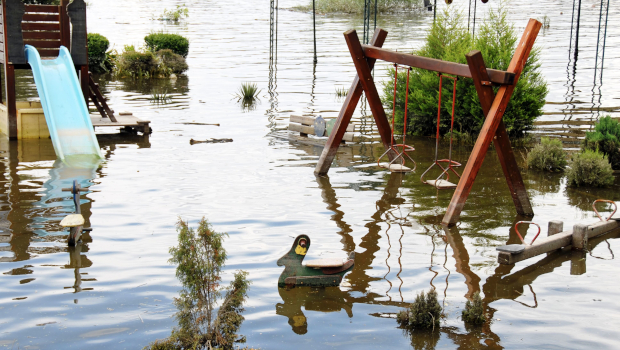
Ireland will see dramatic changes in climate by mid-century, report finds
Ireland will see dramatic changes in climate by the middle of this century. This comes from climate scientists at the Irish Centre for High-End Computing (ICHEC).
The team completed a series of sophisticated high-resolution (~4km) Regional Climate Model (RCM) simulations for Ireland, which indicated temperature increases of 1-1.6°c with enhanced warming in the east, as well as more extreme weather events, and less frost and snow.
The first systematic study of this kind at this scale, ICHEC climate scientist and project lead, Dr Paul Nolan, ran an ensemble of RCMs on the national supercomputer, Kay, to generate high-resolution climate projection data, which allowed for a more detailed assessment of the potential regional and local effects of climate change. The RCM simulations were run at high spatial resolution.
“The models show that the effects of climate change will not be evenly spread across Ireland; the east for example, will see higher overall temperature increases than the west,” said Nolan. “Furthermore, the fine detail of the models results in a more accurate representation of the climate, and in particular, extreme events such as heavy rainfall, droughts and heatwaves.”
To address the uncertainty inherent in climate model projections, a large ensemble of RCM simulations was generated using different RCMs, GCMs and emission scenarios. A statistical analysis of the resulting multi-model ensemble of downscaled datasets was completed allowing for the uncertainty in the projections to be partially quantified.
Selected findings from this study indicate that by mid-century (2041–2060):
- Temperatures are projected to increase by 1–1.6°c compared with the baseline period (1981–2000), with the largest increases in the east
- Warming will be enhanced at the extremes (i.e. hot days and cold nights), with summer daytime and winter night-time temperatures projected to increase by 1–2.4°c
- Substantial decreases of approximately 50% are projected in the number of frost and ice days
- Summer heatwave events are expected to occur more frequently, with the largest increases in the south
- The precipitation climate is expected to become more variable, with substantial projected increases in the occurrence of both dry periods and heavy precipitation events
- Snowfall is projected to decrease substantially by the middle of the century with reductions of over 50%
- The energy content of the 120m (turbine height) wind is projected to decrease for all seasons with the largest decreases noted for summer
- The length of the growing season is projected to increase by between 12% and 16%
- Substantial changes in 10m wind speeds, storm tracks, mean sea level pressure, growing/grazing season, “growing degree days”, surface evapotranspiration, humidity, heating/cooling demand and solar energy resources are also projected by mid-century
The research presents projections of additional climate fields and derived variables that are of importance to sectors including agriculture, health, energy, biodiversity and transport.
“Ireland’s climate is changing, our models indicate this is resulting in higher temperatures, changing precipitation patterns and increases in the frequency and intensity of extreme weather events, with these changes expected to continue and intensify into the future,” said Alastair McKinstry, environmental programme manager, ICHEC.
“Unlike in the past, where we were relying on aggregate data to indicate global and national impacts, the advances in supercomputing and high-performance computing in recent years mean that we can now carry out more detailed assessments and predict the likely local effects of climate change. Policymakers can benefit from this more detailed data in terms of planning for adverse events such as flooding or drought.”
The report was published as part of the EPA Research Programme 2014–2020. The EPA Research Programme is a government of Ireland initiative funded by the Department of Communications, Climate Action and Environment and administered by the EPA. From April 2019, the research was also funded by Met Éireann and the Marine Institute.
TechCentral Reporters







Subscribers 0
Fans 0
Followers 0
Followers